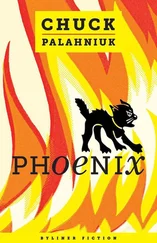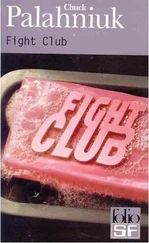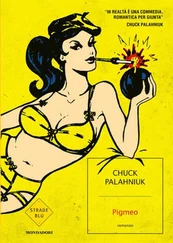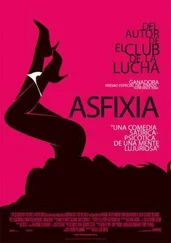I say, Mona said you planned to kill me.
And Helen says, «She told me that you wanted to kill me.»
We both look at each other.
I say, thank God for Mona.
And Helen says, «Buy me some caramel corn?»
On the ground, farther and farther away, Mona's looking through the pages of the planner. Every day, the name of Helen's political target.
Looking up, out of the colored lights and into the night sky, we're getting closer to the stars. Mona once said that stars are the best part of being alive. On the other side, where people go after they die, they can't see the stars.
Think of deep outer space, the incredible cold and quiet. The heaven where silence is reward enough.
I tell Helen that I need to go home and clean something up. It has to be pretty soon, before things get worse.
The dead fashion models. Nash. The police detectives. All of it. How he got the culling spell, I don't know.
We rise higher, farther away from the smells, away from the diesel engine noise. We rise up into the quiet and cold. Mona, reading the planner book, gets smaller. All the crowds of people, their money and elbows and cowboy boots, get smaller. The food booths and the portable toilets get smaller. The screams and rock music, smaller.
At the top, we jerk to a stop. Our seat sways less and less until we're sitting still. This high up, the breeze teases, rats, back-combs Helen's pink bubble of hair. The neon and grease and mud, from this far away it all looks perfect. Perfect, safe, and happy. The music's just a dull thud, thud, thud.
This is how we must look to God.
Looking down at the rides, the spinning colors and screams, Helen says, «I'm glad you found me out. I think I always hoped someone would.» She says, «I'm glad it was you.»
Her life isn't so bad, I say. She has her jewels. She has Patrick.
«Still,» she says, «it's nice to have one person who knows all your secrets.»
Her suit is light blue, but it's not a regular robin's-egg blue. It's the blue of a robin's egg you might find and then worry that it won't hatch because it's dead inside. And then it does hatch, and you worry about what to do next.
On the guard bar locked across us, Helen puts her hand on mine and says, «Mr. Streator, do you even have a first name?»
Carl.
I say, Carl. It's Carl Streator.
I ask, why did she call me middle-aged?
And Helen laughs and says, «Because you are. We both are.»
The wheel jerks again, and we're coming back down.
And I say, her eyes. I say, they're blue.
And this is my life.
At the bottom, the carnival man snaps open the guard bar and I give Helen my hand as she steps out of the seat. The sawdust is loose and soft, and we limp and stumble through the crowds, holding each other around the waist. We get to Mona, and she's still reading the planner book.
«Time for some caramel corn,» Helen says. «Carl, here, is going to buy.»
And the book still open in her hands, Mona looks up. Her mouth open a little, her eyes blink once, twice, three times, fast. She sighs and says, «You know the grimoire we're looking for?» She says, «I think we just found it.»
Some witches write their spells in runes, secret coded symbols. According to Mona, some witches write backward so the spell can only be read in a mirror. They write spells in spirals, starting in the center of the page and curving outward. Some write like the ancient Greek curse tablets with one line running from left to right, then the next running right to left and the next, left to right. This, they call the boustrophedon form because it mimics the back-and-forth pacing of an ox tied to a tether. To mimic a snake, Mona says, some write each line so it branches in a different direction.
The only rule was, a spell has to be twisted. The more hidden, the more twisted, the more powerful the spell. To witches, the twists themselves are magical. They draw or sculpt the magician-god Hephaestus with his legs twisted.
The more twisted the spell, the more it will twist and hobble the victim. It'll confuse them. Occupy their attention. They'll stumble. Get dizzy. Not concentrate.
The same as Big Brother with all his singing and dancing.
In the gravel parking lot, halfway between the carnival and Helen's car, Mona holds the daily planner book so the lights of the carnival shine through just one page. At first, the only things there are the notes Helen's written for that day. The name «Captain Antonio Cappelle,» and a list of real estate appointments. Then you can see a faint pattern in the paper, red words, yellow sentences, blue paragraphs, as each colored light passes behind the page.
«Invisible ink,» Mona says, still holding the page out.
It's faint as a watermark, ghostwriting.
«What tipped me off is the binding,» Mona says.
The cover and binding are dark red leather, polished almost black with handling.
«It's human skin,» Mona says.
It was in Basil Frankie's house, Helen says. It looked like a lovely old book, an empty book. She bought it with Frankie's estate. On the cover is a black five-pointed star.
«A pentagram,» Mona says. «And before it was a book, this was somebody's tattoo. This little bump,» she says, touching a spot on the book's spine, «this is a nipple.»
Mona closes the book and holds it out to Helen and says, «Feel.» She says, «This is beyond ancient.»
And Helen snaps her purse open and gets out her pair of little white gloves with a button at the cuff. She says, «No, you hold it.»
Looking at the book, open in her hands, Mona leafs back and forth. She says, «If I just knew what they used as ink, I'd know how to read it.»
If it's ammonia or vinegar, she says, you'd boil a red cabbage and daub on some of the broth to turn the ink purple.
If it's semen, you could read it under fluorescent light.
I say, people wrote spells in peter tracks?
And Mona says, «Only the most powerful type of spells.»
If it's written in a clear solution of cornstarch, she could daub on iodine to make the letters stand out.
If it was lemon juice, she says, you'd heat the pages to make the ink turn brown.
«Try tasting it,» Helen says, «to see if it's sour.»
And Mona slams the book shut. «It's a thousand-year-old witch book bound in mummified skin and probably written in ancient cum.» She says to Helen, «You lick it.»
And Helen says, «Okay, I get your point. Try at least to hurry and translate it.»
And Mona says, «I'm not the one who's been carrying it around for ten years. I'm not the one who's been ruining it, writing over the top of everything.» She holds the book in both hands and shoves it at Helen. «This is an ancient book. It's written in archaic forms of Greek and Latin, plus some forgotten kinds of runes.» She says, «I'm going to need some time.»
«Here,» Helen says, and snaps open her purse. She takes out a folded square of paper and hands it to Mona, saying, «Here's a copy of the culling song. A man named Basil Frankie translated this much. If you can match it to one of the spells in that book, you can use that as a key to translate all the spells in that language.» She says, «Like in the Rosetta stone.»
And Mona reaches to take the folded paper.
And I snatch it from Helen's hand and ask, why are we even having this discussion? I say, my idea was we'd burn the book. I open the paper, and it's a page 27 stolen from some library, and I say, we need to think about this.
To Helen, I say, are you sure you want to do this to Mona? This spell has pretty much ruined our lives. I say, besides, what Mona knows, Oyster is going to know.
Helen is flexing her fingers into the white gloves. She buttons each cuff and reaches out to Mona, saying, «Give me the book.»
Читать дальше




